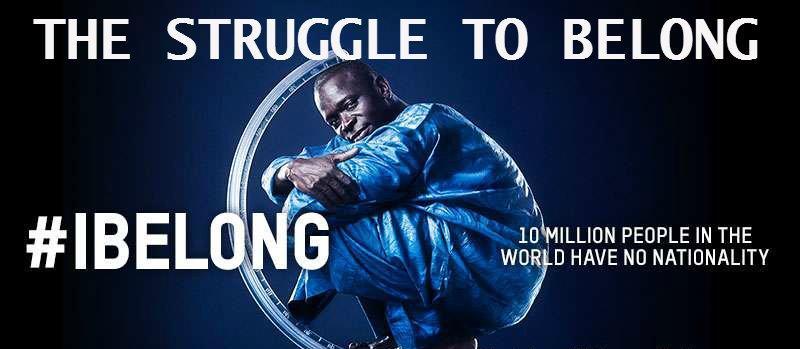By Bethsheba Achitsa
Published March 27, 2010
As Ethiopians brace themselves for the fourth parliamentary elections and the first since the 2005 polls that were marred by controversy and bloodshed, tension in this horn of Africa country is high as the political space continues to narrow, Human Rights Watch (HRW) warn.
For the past five years the Ethiopian government has restricted political space for opposition, stifled independent civil society and intensified control of the mass media. And as the 2010 elections approach repression is gaining momentum with the Meles Zenawi government trying to avoid a replay of the and November 2005 when 200 people were killed over elections.
Zenawi’s ruling Ethiopian People’s Revolutionary Democratic Front (EPRDF), according to Human rights Watch Africa director Georgette Gagnon, limits the ability of independent voices to peacefully express their views. HRW, after following the developments for a year, has compiled a report that it released in Nairobi, Kenya, on March 24, 2010.
The 64 page report, One Hundred Ways of Putting Pressure: Violations of Freedom of Expression and Association in Ethiopia, documents the many ways in which the EPRDF has systematically punished opposition supporters while tracing ways in which the party has continually used its control of local and district administration to monitor individuals at household level. The report also indicates how recently enacted laws severely restrict the activities of civil society and the media while presenting an assessment of patterns of human rights abuses that will impact the environment in which the 2010 elections will be held.
RELATED: Why the UN Peace-Keeping Mission in Congo-Kinshasa Has Failed
While releasing the report at Chester House in Nairobi, Africa director at HRW, Gagnon, said, “Expressing dissent is very dangerous in Ethiopia. The ruling party and the state are becoming one and the government is using the full weight of its power to eliminate opposition and intimidate people into silence.”
Despite constitutional protections, respect for freedom of expression and association in Ethiopia is deteriorating, most Ethiopians are unable to speak freely and challenge their government’s policies whether through peaceful protest, voting or publishing their views. Authorities arrest and detain several high profile opposition and civil society leaders in Addis Ababa without charge. To ensure that many remain loyal to the EPRDF the party has politicised government resources and services where supporters of the party easily access jobs, health services and other resources.
Intensified targeting of teachers and students for party membership reflects the disproportionate influence of these educated individuals in a country where only a small percentage of the population completes secondary school. High school students above grade 10 who are as young as 14 years of age are required to participate in the EPRDF meetings.
RELATED: Uganda Launches Her Not-So-New National Development Plan
ERDF, a coalition of ethnic-based political parties led by the Tigrayan People’s Liberation front (TPLF), came into power in 1991 with the promise of respect for human rights, democratisation and ethnic federalism but despite their commitment to economic development of the nation, the party has not ensured that Ethiopia’s citizens are genuinely able to enjoy their rights, HRW says.
Though the EPRDF is credited with liberalising the media movement that ended the censorship that had prevailed for decades, the relationship between the EPRDF and the private press has been one of deep mistrust. Prominent independent newspapers in the country have been closed down while government has occasionally jammed shortwave broadcasts by Deutsche Welle and Voice of America. Radio remains the principal news medium in predominantly rural Ethiopia, as the government controls the electronic media and telephone services through the government owned telecommunications monopoly, the Ethiopian Telecommunications Corporation (ETC) that is the sole internet and telephone provider.
RELATED: Ethiopia to Vote amid Claims of Human Rights Violation by Government with Donor Complicity
The report also accuses the country’s principal foreign donors (the World Bank, United States, United Kingdom and European Union) for continuing to channel aid to the country even when they know that some aid programmes may be misused by the government to consolidate control. The New York-based HRW points out the passing of the highly repressive CSO law in January 2009 as an example of this failure on the part of the donor community. Only when the bill had passed did the United States, Canada and European Union make very mild public criticism. The European Union issued a statement that it hoped the law would be implemented in an open-minded and constructive spirit, while the same day announcing £250 million in new aid to Addis Ababa.
RELATED: Sexual Violence in Democratic Republic of Congo Exacerbates National AIDS Epidemic
To compile the report, Gagnon said the rights watch dog had interviewed more than 200 people during 15 weeks of research in Ethiopia; they included farmers, teachers, civil servants, activists, opposition and government officials as well as foreign diplomats and aid officials in the Ethiopian capital, Addis Ababa.
Researched and written by Ben Rawlence, researcher in the African division of HRW and Leslie Lefkow, senior researcher and horn of Africa team leader in the African division, One Hundred Ways of Putting Pressure: Violations of Freedom of Expression and Association in Ethiopia notes that though the May 23, 2010 elections may be viewed as an important benchmark by many observers, for many Ethiopians elections day is likely to be far less meaningful.




